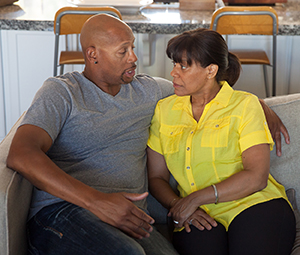If you have just learned that you have a heart problem, or have recently had a heart attack or heart surgery, you may be worried about your love life. You may wonder whether it is safe to have sex. You may also not want to be intimate right now. These can be normal feelings after finding out you have a heart problem. Your healthcare provider can give you instructions on when it is safe to resume sexual activity. In most cases, people can have sex within 3 to 6 weeks after a heart attack. How long you need to recover will depend on the size of your heart attack. After angioplasty and stent placement without a heart attack, it is often safe to resume sexual activity after about a week. After open heart surgery, you may need to wait 6 to 8 weeks. For some severe and rare heart problems, your healthcare provider may advise waiting until your condition has stabilized. Your healthcare provider can give you specific guidelines.
Your feelings are normal
Many people feel scared, depressed, angry, or sad when they have heart trouble. This is normal. You may worry that your body will never be the same. You may be afraid for the future. You may even feel angry that this happened to you. These feelings can affect your desire for sex. But with treatment for your heart problem and over time, your interest in sex will most likely come back and you will be able to be intimate safely. Check with your healthcare provider if you think your heart disease, medicines, or other things are reducing your sexual desire. For most people, having sex should not harm your heart or cause a heart attack. Talk with your healthcare provider if you have symptoms during sexual activity.
Overcoming negative feelings
The first step toward overcoming negative feelings is knowing what is troubling you. Start by trying to:
-
Acknowledge what you are feeling.
-
Be patient with yourself.
-
Talk with your partner about your feelings.
-
Talk about your desires and fears in a supportive setting.
-
Seek expert help as needed.


